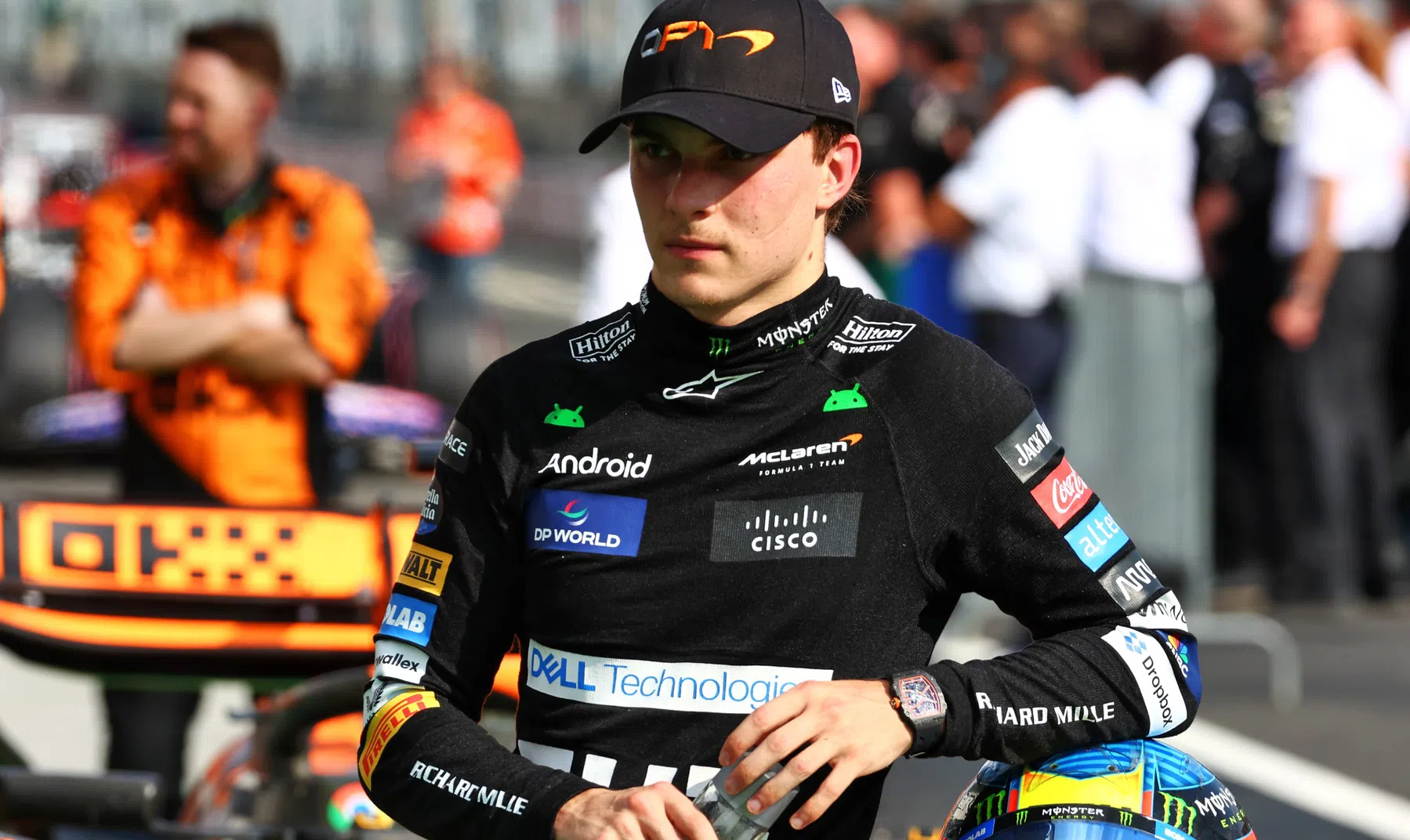Strategic lapses by McLaren leave Norris and Piastri with a sour taste
F1 News

How did McLaren get it so wrong? Of course there were celebrations afterwards. After all, a 1-2 had been achieved by the team, but the debrief will be long and tough. Indeed, Lando Norris will not be happy with the team's strategic choices, but Oscar Piastri was also put in a very difficult position by his team. An analysis of how it could all go so wrong.
Having two team-mates on the front row of the grid sounds like a luxury, but often it also gives teams an immediate luxury problem. After all, once on the front row, both drivers smell victory and will want to do everything they can to win. A briefing beforehand is nice, but when that visor goes down there is only one thing that matters: winning.
That was immediately apparent at the start. Oscar Piastri got away well and dived on the inside of his teammate. Norris squeezed as much as he could, but couldn't push Piastri into the wall. Piastri braked late at the first corner, sending Norris and Max Verstappen to the outside. P1 for Piastri, teammate Norris even briefly ended up on P3.
In the first stint, the two quickly chased each other. Piastri held on well during this phase, managing to keep Norris at bay. As a result, on the first round of pit stops, Norris was the first to be brought in to counter Lewis Hamilton 's undercut. A lap later, Piastri came in, to re-enter the track well ahead of his teammate.
Why Norris was disadvantaged
In that second stint, however, things were not going as well for Piastri. The two McLarens ended up in traffic, and the young Australian visibly struggled with that. After overtaking Esteban Ocon, things go completely wrong as Piastri overshoots the track. His lead of over four seconds is halved in one fell swoop.
As Piastri goes through the gravel and has to have his tyres back in the window, Norris smells blood. The Briton manages to narrow the gap to just under two seconds. By then, Lewis Hamilton has been running a few laps on his new hard tyres and, as with the first pitstop round, McLaren wants to respond. Strangely, it does so first with Norris.
This is strange in two ways. First, it is strange to bring the number two in first. After all, the latter then has the advantage of the fresh tyre and thus a chance of an undercut. In addition, Hamilton had already driven five laps on that hard tyre. So if McLaren wanted to respond, it could have acted a lap earlier. It didn't come down to a last-minute call, but that's what McLaren made of it.
That Hamilton's threat was not so great became clear very quickly. Norris came out of the pits well ahead of Hamilton and Hamilton would eventually finish 14 seconds behind race winner Piastri. So McLaren's hasty reaction was unnecessary on that front too.
McLaren did, however, find itself with a new situation in its grasp: Norris was driving in front of Piastri on the track. McLaren did assume for a while that Norris would give that spot back, but in this case it was a win. Surely that is a bit different than the situations where Piastri helped his teammate earlier.
McLaren also disadvantaged Piastri
McLaren placed Norris in an impossible situation. Had Norris driven on and won the race, he had in fact done nothing wrong. After all, the Briton had obeyed the pit wall when to go into the pits and was faster than his teammate in the second and third stints. Still, Norris would then have been dismissed as selfish. Norris' other option was letting his teammate in front, what ensured that Norris was portrayed as lacking the killer instinct.
In addition, McLaren also played an emotional game with Norris. With the continuous stream of radio messages, Norris was distracted from doing what they pay him to do: race fast. Norris' feelings were played on, the fact that the team would no longer be behind him if he did not obey the team order. That McLaren itself had made a mistake was not mentioned at any point. His race engineer even called that 'irrelevant'.
McLaren also denied Norris the chance to fight for victory with this strategic choice. Indeed, with Norris' strong third stint, one wonders if Norris could not have won on own merit if he had been brought to the pits second. Piastri started making mistakes and, after all, had lost much of his lead before the second round of pit stop.
Although Piastri won the Grand Prix, he too will have a sour aftertaste from the race. Now he was given the win in the closing stages, not the way you want to win. Piastri was also denied a chance of a good win. Had he stayed in front of Norris and kept Norris off him, everyone would have applauded. Had he lost to Norris in that scenario simply because he was faster, that would have been OK too. Now Piastri will still wonder if he would have won that race on his own. And if he doesn't, the outside world will.
For the umpteenth weekend, McLaren was in a negative light in that respect on a strategic level, and again because it mostly reacted, rather than anticipated. It reacted twice (too late) to an undercut by Hamilton, while the team, as in Silverstone, had two cars at its disposal compared to the opposition. Then it also reacted twice in the wrong order, bringing internal problems upon itself.
McLaren will be pleased after the first 1-2 since 2021 and the first win for Oscar Piastri in Formula 1. Still, the way it happened will leave its mark.

